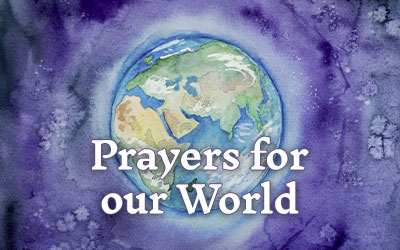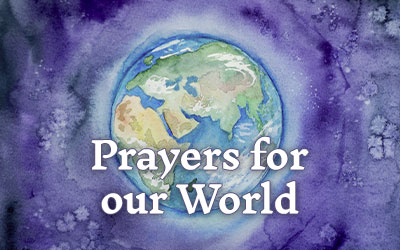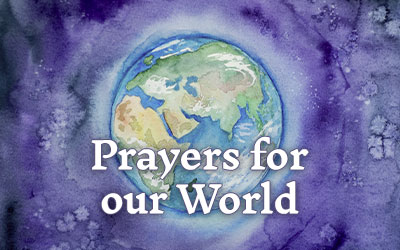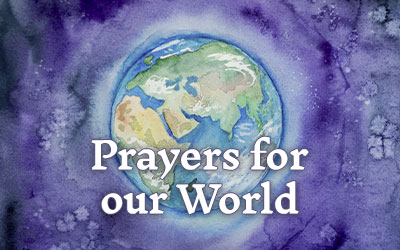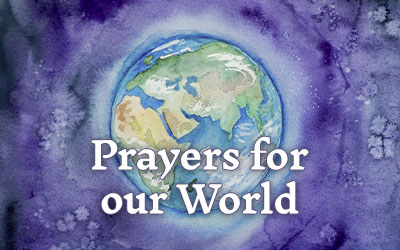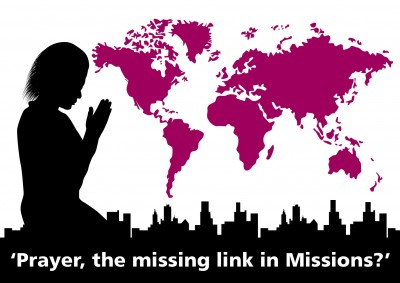There have been wild reports that the United States is considering a "bloody nose" preemptive attack of some sort on North Korea's nuclear arsenal. Such rumors are unlikely to prove true.
Preemptive attacks usually are based on the idea that things will so worsen that hitting first is the only chance to decapitate a regime before it can do greater damage.
But in the struggle between Pyongyang and Washington, who really has gotten the upper hand?
With its false happy face in the current Winter Olympics, North Korea thinks it is winning the war of nerves. Yet its new nuclear missile strategy is pretty transparent. It wants to separate South Korea's strategic interests from those of the United States, with boasts -- backed by occasional missile nuclear tests -- that it can take out West Coast cities.
Pyongyang could then warn its new frenemy, Seoul, that the United States would never risk its own homeland to keep protecting South Korea. Thus, it would supposedly be wiser for Koreans themselves, in the spirit of Olympic brotherhood, to settle their own differences. A failed but nuclear North Korea ultimately would dictate the terms of the relationship to a successful but non-nuclear South Korea.
North Korea might even insincerely offer to dismantle some of its nuclear assets, if the United States would just pull out its forces from the demilitarized zone at the 38th parallel. This strategy would also send the message to the United States that it should have little interest risking a nuclear exchange over a distant and largely internal Korean matter.
The playbook is that of the old Soviet Union during the Cold War, when it habitually tried to separate Europe from the United States. Moscow warned neighboring Europeans that America would never risk its cities to keep the Red Army out of Germany. At the same time, it advised the United States simply to let Europe go and not risk its homeland for such ankle-biting ingrates.
Meanwhile, North Korea's patron, China, also thinks time is on the communist side. Beijing still believes that if Pyongyang can tone down the rhetoric a bit and cut back on the missile testing, things can return to the nuclear status quo of the last decade, which serves China's interest.
North Korea can continue to be a passive-aggressive Chinese pit bull that diverts American time, attention and military assets. China can still offer plausible deniability that it has any control over the rogue North Korean government.
Time, however, may actually be on the American side. The situation in 2018 will certainly be better than it was in 2016. Under the prior policy of "strategic patience," Washington apparently accepted having North Korean missiles pointed at the West Coast. But things are changing in several ways.
First, Japan, South Korea and the United States are rushing to expand several missile-defense systems that may soon not just end North Korea's first-strike capability, but China's as well.
Second, there is serious talk in Japan about developing nuclear weapons. Obviously, Japanese missiles would be pointed at North Korea and China, not the United States. The world has assumed over the last 20 years that unstable regimes such as North Korea, Iran and Pakistan would go nuclear and threaten Western democracies. The next round of proliferation is more likely to be among Western democracies themselves. A nuclear Japan (or South Korea or Taiwan) would not be in China's interest.
Third, there is evidence that tough new sanctions are eroding an already anemic North Korea. The U.S. economy is booming; North Korea's is collapsing. China already is preparing for a flood of refugees across the Chinese-North Korean border.
Fourth, the United States has an array of ways to ratchet up pressure on China to force North Korea to denuclearize -- ranging from tougher trade sanctions to denying visas to thousands of Chinese students and property holders.
Fifth, Donald Trump's approval ratings are up somewhat. And with an improving economy, the Trump administration is gaining clout at home and abroad. On foreign matters, Trump is letting subordinates such as Secretary of State Rex Tillerson, Secretary of Defense James Mattis, National Security Adviser H.R. McMaster, Ambassador to the U.N. Nikki Haley and CIA Director Mike Pompeo do the talking. And they are lining up the world against North Korea.
It would be a mistake at this time to stage a preemptive attack on North Korea. Bombing the North Koreans would trigger a wider war and disrupt the world economy. But most importantly, it would be an act of desperation, not an act of confidence.
In the current nuclear standoff, the United States is insidiously gaining the upper hand while North Korea becomes even poorer and more isolated. The world may not recognize it, but the U.S. is slowly winning.
https://www.realclearpolitics.com/articles/2018/02/15/whos_really_winning_the_north_korea_standoff_136279.html
Let’s continue to uphold the standoff with North Korea in our prayers that the Kim Jong Un regime will fold under pressure and be willing to denuclearize and enter the community of nations. May the governments of South Korea, Japan and the USA have God’s wisdom to act in concert to bring about this result!
Malaysia at the southern tip of the Asian land mass is a colorful and endearing country of SE Asia. It is now at a tipping point in its history as a multi-ethnic democratic experiment, now going into its crucial national elections anytime between now and June 23rd.
- Please pray for a free and fair election with honest results and that serious governmental corruption will be overthrown as a result.
- Pray for the honest resolution of the unresolved case of the abduction of Pastor Raymond Koh and his release from captivity if he is still alive. February will be the 1st anniversary of his abduction. There are concerns about a possible cover-up by the police and authorities that were supposed to investigate the case. Three other Christian leaders and social activists were also kidnapped a couple months earlier and are also still missing.
https://en.wikipedia.org/wiki/Raymond_Koh
For a more in-depth article, click this recent update marking the anniversary on 13th February: http://www.malaysia-chronicle.com/malaysia-under-najib-no-longer-safe-for-christians-pastor-koh-betrayed-abandoned-amid-rising-tide-of-anti-christian-sentiment/
- The freedom of the Christians to use the word “Allah” for God (Jill Ireland 'Allah' court case decision on 23 March, 2018)
https://www.worldwatchmonitor.org/2017/10/jill-ireland-back-court-malaysia-considers-christians-right-call-god-allah/
- 4. Favor for the Gospel and Christians within the majority Muslim population due to increasing 'anti-Christian' sentiments among Muslims
https://www.nst.com.my/news/nation/2018/01/321899/other-countries-encouraged-emulate-malaysias-way-combating-terrorism (Christians are equated with ISIS)
https://www.themalaysianinsight.com/s/5196/ (Call to outlaw evangelicalism)
- 5. Pray that Malaysians of all the diverse ethnic groups will get to hear His Good News and that His messengers in that land will be bold and fearless in making Jesus Christ known to all.
“Denis* was just six years old when his house in Ukraine was hit by a shell, leaving him with shrapnel wounds to his skull and body. Doctors were unable to remove all the shrapnel over fears it could cause nerve damage and leave him without movement in his arm, so the remaining fragments remain under his skin.
He is one of at least 357 million children who are now living in areas around the world impacted by armed conflict, a report by the Save the Children charity has revealed.
Since 1991, the number has increased by 75 per cent, with one in six children globally now considered to be living in areas where they are vulnerable to grave violations of their human rights.
Such violations include killing and maiming, sexual violence, the recruitment and use of children, abductions, attacks on schools and hospitals and the denial of humanitarian assistance…
The number of United Nations-verified cases of children being killed or maimed has increased by almost 300 per cent since 2010, while incidents of the denial of humanitarian access have increased by more than 1,500 per cent, the "War on Children" report said.
The rise has been fueled by a growing lack of respect for the rules of war and indiscriminate violence in countries such as Syria, Afghanistan and South Sudan.
The report found children have increasingly been used as suicide bombers, while schools and hospitals have been deliberately targeted and children maimed and killed as a result of the widespread use of indiscriminate weapons, such as cluster munitions, barrel bombs and improvised explosive devices (IEDs).
Two in five children in the Middle East live in a conflict zone, the highest rate globally, while one in five children is affected by conflict in Africa. Asia has the highest overall number of children affected by conflict.
Syria, Afghanistan and Somalia were the most dangerous conflict-afflicted areas in the world to be a child in 2016, the last year for which comprehensive data is available.
Keven Waters, CEO of Save the Children, said: “The marked increase in the number of children living in conflict-affected areas, combined with the worsening violations against those children by warring parties, should worry all of us.
“We face a stark choice. Do we stand by while more children die in school attacks or in their hospital beds - or are denied life-saving aid - or will we tackle the culture of impunity and end this ‘war on children’?”
Samuel Osborne, Helen Hoddinott, Thursday 15 February 2018, Independent.co.uk
Please pray for the United Nations and governments of the world community to work together to end the multiple wars that are destroying the lives of so many children and their families right now. Agree in faith that Satan, the murderer and destroyer, will be bound and that Christ’s peace will come in and rule these conflicted situations. Here are some of them in the news right now:
1) Syria
The United Nations has called for an extension of Russia's daily five-hour pause in military activity in the besieged eastern Ghouta area while the European Union has urged Russia, Iran, and Turkey to fully implement a UN order for a cease-fire.
"Five hours is better than no hours but we would like to see any cessation of hostilities be extended," UN spokesman Stephane Dujarric said on February 26.
Defense Minister Sergei Shoigu said on February 26 that President Vladimir Putin ordered a "humanitarian pause" from 9 a.m. to 2 p.m. local time, Russian news agencies reported.
A humanitarian corridor will be opened in Ghouta to allow civilians to leave, Shoigu also said.
Yury Yevtushenko, a Russian official based in Syria, said on February 26 that Syrian government troops would not carry out any air strikes during the daily five-hour-long pause.
The announcement comes after the UN Security Council on February 24 passed a resolution demanding a 30-day cease-fire "without delay" to allow aid deliveries and medical evacuations in Syria's conflict areas.
The move followed a week of intense bombardment by Syrian government forces in the besieged area near Damascus that killed more than 540 people, according to activists.”
Russia has ordered a daily pause in fighting on the rebel-held enclave of eastern Ghouta to start from tomorrow after a UN-ordered ceasefire failed to hold.
Vladimir Putin's demand to his ally Bashar Assad offers hope for residents inside the contested zone to escape - and for humanitarian aid to come in.
Children were among those killed and injured a fresh wave of what are said to be chemical attacks on the area today.
A UN Security Council resolution passed at the weekend which called for a 30-day cease-fire across Syria failed to stop the carnage in the eastern Ghouta region.
Nearly 90 have been killed since the vote was taken since Saturday.
The priority now is to get urgent humanitarian relief to those in eastern Ghouta.
That is more likely to be possible, thanks to Russia's demand for a five-hour pause in military operations in the area each day.
Russia's Defense Minister Sergei Shoigu said Putin has ordered daily "humanitarian pauses" between 9am and 2pm, starting from Tuesday.
But in a war where ceasefire deals have failed many times before, those inside eastern Ghouta are still watching and hoping to see if it holds.
Radio Free Europe and ITV News
2) Yemen
“A proxy war between Iran-aligned Houthis and the internationally recognized government of President Abd-Rabbu Mansour Hadi, which is backed by a Saudi-led alliance, has killed more than 10,000 people since 2015, displaced more than 2 million and destroyed much of the country’s infrastructure, including the health system…
Yemen relies heavily on food imports and is on the brink of famine. The United Nations says more than 22 million of Yemen’s 25 million population need humanitarian assistance, including 11.3 million who are in acute need.
Salama said the country had also had an outbreak of diphtheria, a vaccine-preventable disease that usually affects children and which has largely been eliminated in developed countries.
Both cholera and diphtheria outbreaks are a product of the damage to the health system in the country, he said, adding that less than half of Yemen’s health facilities are fully functioning.
“We’re very concerned we’re going to go from a failing health system to a failed one that’s going to spawn more infectious diseases and more suffering,” Salama said.”
Sarah Dadouch; Editing by Alison Williams for Reuters.com
3) South Sudan
“South Sudan is close to another famine, aid officials said on Monday, after more than four years of civil war and failed ceasefires in the world’s youngest nation.
Almost two-thirds of the population will need food aid this year to stave off starvation and malnutrition as aid groups prepare for the “toughest year on record”, members of a working group including South Sudanese and U.N. officials said.
“The situation is extremely fragile, and we are close to seeing another famine. The projections are stark. If we ignore them, we’ll be faced with a growing tragedy,” said Serge Tissot, from the U.N. Food and Agriculture Organization in South Sudan.
A total of 5.3 million people, 48 percent of the population, are already in “crisis” or “emergency” - stages three and four on a five point scale, according to a survey published by the working group.
The oil-rich east African nation has been torn apart by an ethnically charged civil war since late 2013, when troops loyal to President SalvaKiir and then-Vice President Riek Machar clashed.
Since then, more than 4 million people have been forced to flee their homes, creating Africa’s larges refugee crisis since the 1994 Rwandan genocide…”
Tom Miles; Editing by Peter Graff and Andrew Heavens for Reuters.com
Please hold up these tragic and horrible conflicts before the Lord, asking that He bring about peace negotiations, effective humanitarian relief, and willingness by the combatants to declare ceasefires that hold, bring about reconciliation and become lasting peace agreements. Only God in His mercy can bring about a real solution as His people pray, both within these affected nations and around the world.
He makes wars cease to the ends of the earth.
He breaks the bow and shatters the spear; he burns the shields[d] with fire.
He says, “Be still, and know that I am God; I will be exalted among the nations,
I will be exalted in the earth.” (Psalms 46:9-10)
King Abdullah clearly announced that he believes in a recent media interview.
https://youtu.be/NMMvswyDIpI (TRUNEWS Christian News media in Miami )
Let’s pray for other political leaders of Middle Eastern and other nations to come to faith and speak out boldly, giving their citizens the freedom to also confess and practice their faith!
In one of his many interviews, Billy Graham said that as a busy international evangelist, if he had his life to live again, he would devote more time to prayer and study of God’s Word.
Let’s pray that we may follow his example and that the rich legacy of this world-famous yet humble, loving and wise man of God will continue to impact our world not only during this coming week during his funeral but also in the future.
Here is a brief tribute and some timeless quotes from Dr. Graham:
EDITOR'S NOTE: The Rev. Billy Graham passed away at the age of 99 on February 21, 2018.
Billy Graham preached the message of Christ’s freedom and forgiveness around the world, reaching over 200 million people in more than 185 countries. He led hundreds of thousands of people to pray to receive Jesus Christ into their lives as Lord and Savior. His integrity and wisdom opened doors to offer spiritual support and guidance for United States presidents from Eisenhower to Bush. He was a friend to celebrities, politicians, athletes, and leaders, such as Martin Luther King, Jr., Bono, Muhammad Ali, Johnny Cash, Larry King, and WWII hero and Olympian Louis Zamperini.
Billy Graham was named by Americans as "One of the Ten Most Admired Men in the World,” a record-breaking 59 times with the Gallup poll. He was known through the years as not only a world-renowned evangelist, but as a kind, non-judgmental, accepting, and humorous soul.
His message is timeless, powerful, and relevant for today. The phrase, “the Bible says,” resounds throughout his sermons, and the truth he preached for years still transcends all barriers of denominational differences, age, nationality, and culture. It has stood the test of time and generations, pointing millions to Christ.
The Reverend Billy Graham preached God’s Word with conviction and passion for over 60 years. Here are just a few of his words of wisdom.
On Heaven:
“My home is in Heaven. I'm just traveling through this world.”
“Heaven is full of answers for which nobody ever bothered to ask.”
“God will prepare everything for our perfect happiness in heaven, and if it takes my dog being there, I believe he'll be there.”
“The moment we take our last breath on earth, we take our first in heaven.”
On Jesus:
“God proved his love on the Cross. When Christ hung, and bled, and died, it was God saying to the world, ‘I love you.’”
“Christ not only died for all: he died for each.”
“We say to our children, 'Act like grown-ups,' but Jesus said to the grown-ups, 'Be like children.'
"The only hope for enduring peace is Jesus Christ."
“Without the resurrection, the cross is meaningless.”
“The cross shows us the seriousness of our sin—but it also shows us the immeasurable love of God.”
On God's Will and Purpose for Us:
“The will of God will not take us where the grace of God cannot sustain us.”
“God never takes away something from your life without replacing it with something better.”
“Take one day at a time. Today, after all, is the tomorrow you worried about yesterday.”
"God has given us two hands, one to receive with and the other to give with."
On How to Live with Eyes Fixed on Eternity:
“I've read the last page of the Bible, it's all going to turn out all right.”
“There is nothing wrong with men possessing riches. The wrong comes when riches possess men.”
“If a person gets his attitude toward money straight, it will help straighten out almost every other area in his life.”
“The only time my prayers are never answered is on the golf course.”
“When wealth is lost, nothing is lost; when health is lost, something is lost; when character is lost, all is lost.”
“Knowing we will be with Christ forever far outweighs our burdens today! Keep your eyes on eternity!”
“World events are moving very rapidly now. I pick up the Bible in one hand, and I pick up the newspaper in the other. And I read almost the same words in the newspaper as I read in the Bible. It’s being fulfilled every day round about us.”
On Loving God and Loving Others Well:
“It is the Holy Spirit's job to convict, God's job to judge and my job to love.”
“A real Christian is the one who can give his pet parrot to the town gossip.”
“Sin is the second most powerful force in the universe, for it sent Jesus to the cross. Only one force is greater—the love of God.”
“The framers of our Constitution meant we were to have freedom of religion, not freedom from religion.”
“They asked her (Ruth Graham) did she ever think about divorce and she said, ‘No, I’ve never thought of divorce in all these 35 years of marriage, but,’ she said, ‘I did think of murder a few times.’”
“Our society strives to avoid any possibility of offending anyone – except God.”
On Evangelism:
“We are the Bibles the world is reading; we are the creeds the world is needing; we are the sermons the world is heeding.”
“I have never known anyone to accept Christ’s redemption and later regret it.”
“Tears shed for self are tears of weakness, but tears shed for others are a sign of strength.”
“Being a Christian is more than just an instantaneous conversion – it is a daily process whereby you grow to be more and more like Christ.”
"The message I preach hasn't changed. Circumstances have changed. Problems have changed, but deep inside man has not changed, and the gospel hasn't changed."
On Suffering:
“Comfort and prosperity have never enriched the world as much as adversity has.”
"Mountaintops are for views and inspiration, but fruit is grown in the valleys."
“When we come to the end of ourselves, we come to the beginning of God."
“Someone asked me recently if I didn’t think God was unfair, allowing me to have Parkinson’s and other medical problems when I have tried to serve him faithfully. I replied that I did not see it that way at all. Suffering is part of the human condition, and it comes to us all. The key is how we react to it, either turning away from God in anger and bitterness or growing closer to him in trust and confidence.”
“Believers, look up – take courage. The angels are nearer than you think.”
“Quit beating yourself up. We all live under grace and do the best we can.”
From Billy Graham's 9/11 Message at the Washington National Cathedral:
I’ve become an old man now. And I’ve preached all over the world. And the older I get, the more I cling to that hope that I started with many years ago, and proclaimed it in many languages to many parts of the world.”
That hope he speaks of so passionately, is the powerful message of Christ and the cross.
“The cross tells us that God understands our sin and our suffering, for he took them upon himself in the Person of Jesus Christ. From the cross God declares, 'I love you. I know the heartaches and the sorrows and the pain that you feel. But I love you.'
The story does not end with the cross, for Easter points us beyond the tragedy of the cross to the empty tomb. It tells us that there is hope for eternal life, for Christ has conquered evil and death and hell. Yes, there is hope.”
“For God so loved the world that he gave his one and only Son, that whoever believes in him shall not perish but have eternal life” (John 3:16).
Just as I am.
All is grace.
(From “Forty Powerful Quotes of Billy Graham” by Debbie McDaniel Crosswalk.com Contributing Writer)
 References:
References:
The Billy Graham Evangelistic Association
Watch a Live Stream of Billy Graham's preaching from the Billy Graham Evangelical Association:https://memorial.billygraham.org/live-stream/
This is a magnificent reminder of whom we are praying to, the Awesome God, presented in all His names. This beautiful recounting of His diverse names in Scripture will uplift and encourage you to meditate on and pray to the Lord of Eternity.
Prayer can often be the missing link in our efforts on behalf of the unevangelized world. As important as good organization, planning, and strategy are in world evangelization, in our busyness for God we may have neglected to link up with His power and direction to carry out that particular part of His mission given to us. And that is a crucial omission!
While doing some research at the Fuller Seminary library, I was startled to discover amidst their sizeable holdings on missions to discover no book specifically on the subject of prayer and missions. True, there were passing references to prayer in volumes on the history of missions and the theology of missions. But the great bulk of books dealt with issues of mission strategy, organization and planning. Could this unwitting omission at one of the great schools of missiology be reflective of a more general neglect of a critical factor in the accomplishment of world evangelization?
In musing over the failure of his generation to evangelize the world by 1900, A.T. Pierson attributed this failure not only to a lack on consecration in the church evidenced by a lack of giving, faith, personal holiness, but most of all to the lack of prevailing prayer. He wrote:
"Every time the church has set herself to praying there have been stupendous movements in the mission world. If we should but transfer the stress of our dependence and emphasis from appeals to men to appeals to God-from trust in organization to trust in supplication-from confidence in methods to importunate prayer for the power of the Holy Spirit, we should see results more astounding than have yet been wrought."
"There is...too little simple looking unto that real source of success, the power of God in answer to prayer, first to open doors of access, then to raise up and thrust forth laborers and then to break down all opposition and make the truth mighty in converting, subduing, saving and sanctifying."
Participants at the Northfield Convention of 1885 expressed the same sentiment:
"But above all else our immediate and imperative need is a new spirit of earnest and prevailing prayer. The first Pentecost crowned ten days of united, continued supplication. Every subsequent advance maybe directly traced to believing prayer and upon this must depend a new Pentecost. We therefore earnestly appeal to all fellow disciples to join us and each other in importunate daily supplication for a new and mighty effusion of the Holy Spirit upon all ministers, missionaries, evangelists, pastors, teachers and Christian workers and upon the whole earth; that God would impart to all Christ's witnesses the tongues of fire and melt hard hearts before the burning message. It is not by might not by power but by the Spirit of the Lord that all true success must be secured. Let us call upon God till He answereth by fire!"
Twenty-five years later the year 1900 had come and gone. At the conclusion of the great Edinburgh Conference on Mission in 1910, Jonathan Goforth expressed his disillusionment with the missions movement for generally failing to follow through in making prayer an ongoing priority in world evangelization:
"Listening to the addresses that day one could not but conclude that the giving of the Gospel to lost mankind was largely a matter of better organization, better equipment, more men and women. Symptoms indeed were not lacking that a few more sparks might have precipitated an explosion. But no, the dethronement of the idol of ecclesiastical self-efficiency was apparently too great a price to pay....We still refuse to face the unchangeable truth that 'it is not by might nor by power, but BY MY SPIRIT.'"
Perhaps the Edinburgh Conference Report also betrays a recognition that prayer had not been given its due in the years before and after 1900: "When the church sets itself to pray with the same seriousness and strength of purpose that it has devoted to other forms of Christian effort, it will see the Kingdom of God come with power."
Whether or not prayer became a missing link in the world missions effort before and after 1900 is a question for further research. Nevertheless, we face the same danger today of falling into the trap of thinking that if we were just better organized, just better coordinated, just better deployed with our people and resources, we would be able to accomplish world evangelization. Pierson and Goforth were right. They realized that world evangelization above all is an issue to be decided by spiritual power, the power of the Holy Spirit released in response to the prayers of His people.
Arthur Matthews, the late former missionary of the China Inland Mission, put his finger on the reason that we often do not emphasize prayer enough: "The concept that treats prayer as if it were a supplemental booster in getting some project off the ground makes the project primary and the prayer secondary. Prayer was never meant to be incidental to the work of God. It is the work." Could we and other mission strategists be guilty of treating prayer as if it were a nice add-on to the other "strategic" things we are up to? Could it be that we have ignored the most strategic activity in accomplishing world evangelization? Reasons from Scripture, the history of missions and current missionary experience all compel us to contend that prayer is our most strategic resource in missions.
John Robb, IPC Chairman
(Excerpted and adapted from the article by John Robb “Prayer as a Strategic Weapon in Frontier Mission” published in the International Journal of Frontier Missiology in 1991)
Iran: an army of hope
23 Feb 2018World News recently published an article highlighting what Christian broadcasters are doing to contribute to the fastest growing evangelical population on the planet. Iran Alive Ministries broadcast Christian programmes across the region, and Dr Hormoz Shariat, the president and founder, has been called ‘the Billy Graham of Iran’. Millions of Iranians refer to him as ‘my pastor’ as he speaks to them in their living rooms each evening on satellite television. In recent months, protests have broken out all over Iran, with people marching in the streets against their government. Dr Hormoz helped listeners outside and inside Iran to understand what the protests mean. He encouraged Christians in Iran to use the protests as an opportunity to share the gospel; in doing this Iranians saw even more people come to Christ. See also
